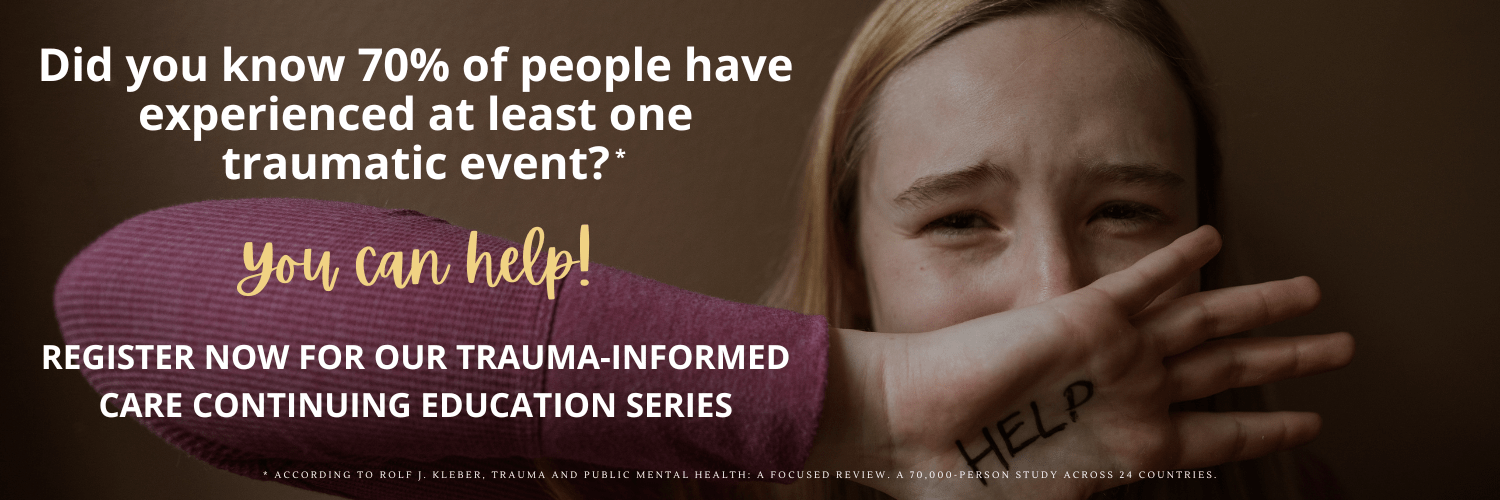

Trauma-informed care is a strengths-based practice framework that prioritizes understanding and addressing the pervasive nature and impact of stress and trauma. Therefore, this approach emphasizes creating an environment that supports recovery while actively avoiding practices that could unintentionally cause further harm or re-traumatization.
Adopting a trauma-informed approach to your practice does not rely on a specific technique or checklist. Instead, it is an ongoing process that requires continuous caring awareness, focused attention, and deep sensitivity to the needs of those you serve.
Description
In this course, we will delve into the theoretical foundations, neuroscience, and wide-reaching effects of stress and emotional and psychological trauma. Furthermore, you will learn practical ways to deliver trauma-informed care through compassionate, empathetic, and person-centered services. These principles will be explored at the personal, practice, and organizational levels to ensure a holistic understanding of trauma-informed care.
Dates & Times
10-Week Series: We will meet via Zoom on Wednesdays, May 14th to July 16th, 2025, from 5:30–8:30 PM MST. (Convert to my time zone)
Cost
Early bird rate of $299 CDN until April 21st, 2025. $399 CDN thereafter.
This program is registered with the Yoga Alliance for 30 hours of YACEP Continuing Education Credits.
Why this course matters
Trauma knows no boundaries; it impacts individuals of all races, ages, ethnicities, and socioeconomic backgrounds. In this course, we define trauma as “anything that overwhelms an individual’s ability to cope.” For example, it may stem from a single event or a series of events. Traumatic experiences often involve threats to physical or emotional well-being, leading to feelings of terror, helplessness, and a loss of control.
Trauma can profoundly change how individuals view themselves, their surroundings, and the people around them. Moreover, it can disrupt biological, cognitive, and emotional functioning while affecting identity, relationships, and social interactions.
As service providers, it is essential to adopt the principles of Trauma-Informed Care to meet these challenges with empathy and expertise.
What You’ll Learn in This Course:
This course provides you with an in-depth understanding of the principles and tenets of Trauma-Informed Care. You will be encouraged and inspired to provide compassionate and effective care for those affected by trauma. Specifically, you will gain the skills to:
- Define trauma and understand its impact on mental and physical health.
- Explore the Adverse Childhood Experiences (ACE) Study and Attachment Theory.
- Identify and manage triggers on individual, practice, and organizational levels.
- Recognize and respond appropriately to trauma disclosures.
- Develop strategies to prevent vicarious trauma and compassion fatigue.
- Understand how to integrate evidence-based, embodied practices like yoga, meditation, and mindfulness.
- Create trauma-informed environments that foster autonomy, self-regulation, and resilience.
Our Approach
We utilize the G.R.E.E.N.E.R Trauma-Informed Model ©, designed to prepare you to establish trust and safety with your clients. This approach supports individuals in exploring somatic experiences, building coping skills, and navigating mental health challenges.
Furthermore, you will learn how to care for yourself as a caregiver while maintaining a client-centered focus. This includes holding space for resistance and working through challenges without attachment to specific outcomes.
Why this approach matters
When dealing with stress and trauma, caring professionals make all the difference. A stress and trauma-informed care approach empowers you to:
- Help clients achieve their recovery goals.
- Support somatic exploration with healthy coping skills.
- Hold space for complex emotional cycles like shame, pride, resistance, and acceptance.
- Stay grounded while witnessing the impacts of stress and trauma.
- Foster safety, autonomy, and empowerment for your clients.
What to expect
You will leave this course equipped with tools, knowledge, and expertise to emphasize physical, psychological, and emotional safety for both practitioners and survivors. Most importantly, you’ll be empowered to create opportunities for survivors to rebuild autonomy, emotional regulation, and resilience.
Cohort Model
Our live cohort model fosters community connection, shared best practices, and collaborative solutions to industry challenges. Guided by our founder and Yoga Therapist, Melanie Taylor, this model ensures a supportive and enriching learning experience.
Who is this course for?
This introductory workshop is perfect for yoga teachers, caregivers, holistic practitioners, teachers, community leaders, and anyone interested in understanding the short- and long-term effects of trauma. Whether you are new to trauma-informed care or seeking to expand your knowledge, this course will provide valuable insights and practical tools.
Reference: Rolf J. Kleber, Trauma and Public Mental Health: A Focused Review. A 70,000-person study across 24 countries.
